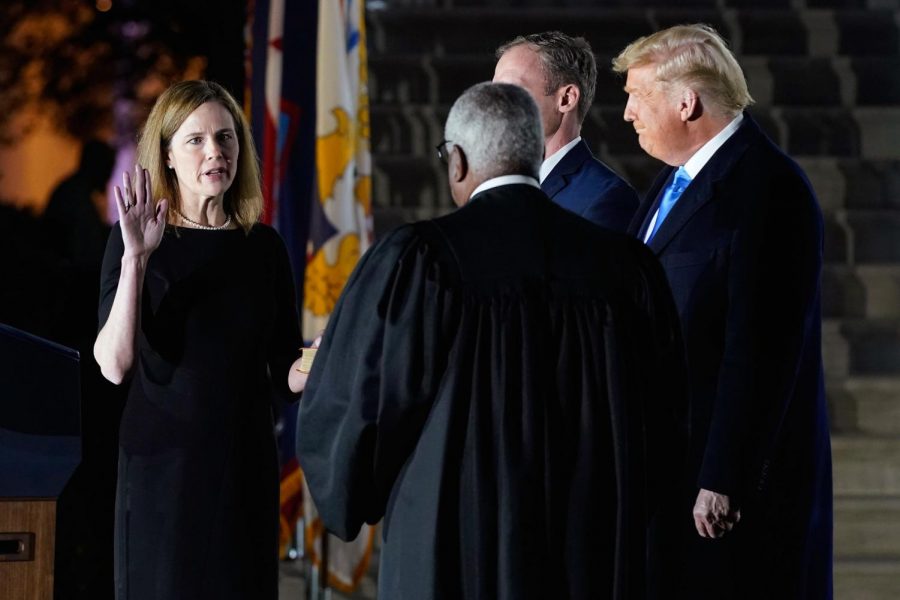Amy Coney Barrett replaces Ruth Bader Ginsburg
November 4, 2020

Amy Coney Barrett pays tribute to Ruth Bader Ginsburg. (Photo Courtesy of Pink News)
On October 26, President Donald Trump appointed Amy Coney Barrett as the new Supreme Court Justice to replace the late Ruth Bader Ginsburg. Who is Barrett? Well, let’s find out!
Amy Coney Barrett is a newly confirmed Supreme Court Justice, nominated by President Donald Trump. This occurred only eight days after Former Justice Ruth Bader Ginsburg, meaning that this is one of “the fastest (confirmations) in US history,” stated by Sky News Australia. Due to Justice Ginsburg’s passing on September 18, Barrett was selected to take over the Supreme Justice Position. This has resulted in the court being 6-3, with Conservatives in the majority.
Before taking a seat with the other Justices, Coney Barrett was a professor at Notre Dame and worked at John M. Olin as a visiting associate professor. Barrett had taken her oath of office under Justice Thomas Clarence on October 27. The next day, she took the judicial oath under Chief Justice John Roberts.
Mili Godio from News Week stated that, “Donald Trump had sworn that he would hire justices to the Supreme court who would overturn Roe v. Wade.” Roe v. Wade (1973) was a landmark case that gave pregnant women the ability to have an abortion up to 12 weeks; in this case, the Supreme Court had been in favor of this. Wade (1973) was the landmark decision that which the Court ruled that the “Constitution of the United State protects a pregnant woman’s options to choose to have an abortion without excessive government restriction.”
On October 13, when Barrett was asked about her views on Roe v Wade, she did not respond with a clear answer on her stance.
Coney Barrett had been mentored by Antonin Scalia, who served as an Associate Justice of the Supreme Court of the United States right before his death in 2016. Barrett said to the Judiciary Committee that, “more than the style of his writing… it was the content of Justice (Antonin) Scalia’s reasoning that shaped me.” She goes further on to describe Scalia’s philosophy which reasoned in favor that “a judge should apply to the law as it is written, not as the judge wishes it were.” It was this phrase that links back to originalism for many critics.
As shown in the context of the United States law, Originalism is a concept regarding the elucidation of the Constitution that advocates all statements in the Constitution have to be interpreted based on the original understanding “at the time it was adopted.”
Virginia Chamalee of People states that “Critics of Originalism argue it can instead enforce centuries-old attitudes and prejudices rather than adapting the letter of the law to the spirit of current society. Others say the practice can be historically murky, trying to divine the founders’ intent and how that might apply to — say — questions of how police should interact with a suspect’s cell phone.”
Last Updated on October 31th at 5:02pm



